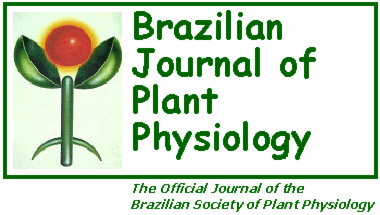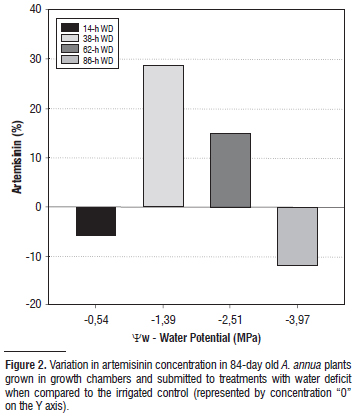Despite the importance of Artemisia annua L. as the only source of the anti-parasitic drug artemisinin, little is known on the effects of biotic and abiotic stress on artemisinin accumulation. Water deficit is the most limiting factor on plant growth, however it can trigger secondary metabolite accumulation, depending on the plant growth stage and intensity. A. annua cultivated in growth chambers was submitted to five water deficit treatments (watered, 14, 38, 62 e 86 hours without irrigation). Water deficits of 38 and 62 hours (Yw = -1.39 and -2.51 MPa, respectively) increased leaf artemisinin content, but only 38 hours led to a significant increase in both leaf and plant artemisinin (29%), with no detriment to plant biomass production. The other treatments had no effect on, or decreased artemisinin accumulation. A. annua plants tolerated well water deficit treatments, including the most severe water deficit applied (Yw -3.97 MPa or 86 hs without irrigation) and recovered their turgor pressure after rehydration. These results suggest that moderate water deficit prior to harvesting the crop may not only reduce time and costs in drying the crop, but can also induce artemisinin accumulation, both of which increase crop profit margins. Results also suggest that artemisinin could be part of A. annua chemical system of defense against water deficit.
Malaria; secondary metabolism; terpene; drought; water stress




